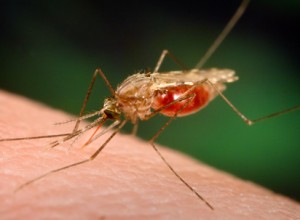WHO encourages African leaders to address malaria challenges
 The World Health Organisation (WHO) has encouraged African leaders to harness innovation and expand the use of the malaria vaccine, to curb prevalence among children in high and moderate transmission regions.
The World Health Organisation (WHO) has encouraged African leaders to harness innovation and expand the use of the malaria vaccine, to curb prevalence among children in high and moderate transmission regions.
It said malaria was a persistent socio-economic and development challenge that could not be solved by malaria technical experts alone, saying, “the context is changing, presenting new threats and opportunities, such as COVID-19.”
Dr Matshidiso Moeti, the WHO Regional Director for Africa, made the call in a speech read on her behalf by Dr Elizabeth Juma, at an inaugural meeting of the Parliamentary Network on Malaria Elimination in the ECOWAS Region.
“We are convinced that with strong ownership and leadership by our Member States, political engagement like the one being launched today, and initiatives such as the high burden to high impact and Sahel Malaria Initiative, we will deliver the expected results,” she added.
The three-day meeting hosted by Ghana formed part of the much-needed political engagement and commitment to end malaria.
The membership of the network was drawn from MPs from ECOWAS Member States with interest and willingness to champion and serve as advocates for malaria control and elimination in their respective countries and across the region.
Dr Moeti stated that malaria was a major health problem in Africa, in 2020, six high burden countries in sub-Saharan Africa accounted for 55 per cent of the global load.
“Malaria cases are increasing, the 2021 World Malaria Report indicates that there were 228 million new cases, 627,000 needless deaths, 95 per cent occurred in the African Region in 2020. 80 per cent of which were in children under five,” she stated.
She explained that the COVID-19 pandemic had added an impact on the malaria burden in the region, increasing the cases and deaths due to malaria to two thirds.
This has stalled the progress made, and we are off track to achieve the agreed targets for eliminating malaria as a public health problem by 2030.
“We are thus hopeful that this political engagement would enhance commitment to the elimination of the disease through increased allocation of domestic resources, multisectoral engagement, and community participation,” she added.
Mr Kwaku Agyeman-Manu, Minister of Health, in a speech read on his behalf at the opening of the meeting, reiterated that malaria exacted a heavy toll on households, not only in terms of pain and illness, but also, in terms of health spending, school absenteeism and reduced work output.
“We have made some significant progress in reducing the disease burden in the ECOWAS region but much more needs to be done,” he added.
The Minster noted that the meeting would therefore allow the parliamentarians to be appriased on the burden of malaria in the region, on-going initiatives and challenges in the control and elimination efforts.
He said it would as well enable the Members of Parliament (MPs) to reflect and share their perspectives on their roles in the control and elimination through a series of panel discussions.
Mr Agyeman-Manu urged the network to institute the necessary mechanisms to ensure regular updates on progress towards malaria elimination in the ECOWAS region, challenges and needed actions.
The network has a responsibility to act to ensure that malaria is kept high on the national and regional political and developmental agenda as well as to hold governments and institutions accountable to their commitments.
Professor Sheila Tlou, The ALMA Ambassador in the ECOWAS Region, called for the need to improve the ECOWAS countries’ cross border collaboration for better synergy, including resources mobilization, disease surveillance and emergency situations.
She called for established mechanisms for collaborative action on malaria among regional economic communities as an essential element towards malaria elimination and sustainable development in the ECOWAS region and beyond.
Source: GNA
